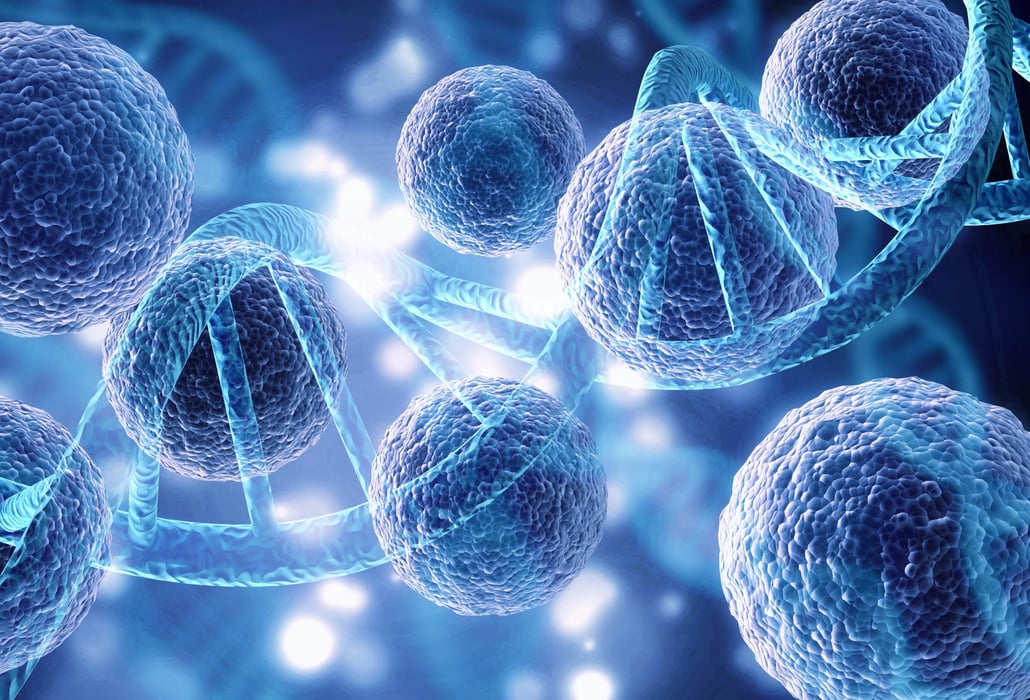Over 60? You Have Billions of Potentially Cancer-Causing Cells

THURSDAY, Dec. 16, 2021 (HealthDay News) -- Have you just turned 60 and feel like you're in great health?
Well, new research suggests that unseen dangers lurk: Scientists found that cancer-free people older than 60 have at least 100 billion cells with at least one cancer-associated mutation.
But there's good news, too: The vast majority of these mutations won't do anything and most people (60%) will go their entire lives without a cancer diagnosis, according to the U.S. National Cancer Institute.
The researchers conducted a meta-analysis of previously published sequencing data on normal tissues, to categorize mutations that occur after egg fertilization.
"When you have trillions of cells and they're being maintained for up to a century, they're going to accumulate mutations," said study author James DeGregori, deputy director of the University of Colorado Cancer Center.
"The fact that we get mutations is not surprising, just based on known mutation rates. One thing this research points to is that we need to start looking at these mutations, and how or whether they cause cancer, from a different light," DeGregori explained in a university news release.
Their findings were published recently in the journal Aging and Cancer.
"To understand the genesis of cancer, we need to look at normal tissue," said study author Edward Evans, a postdoctoral fellow in the Department of Biochemistry and Molecular Genetics at the University of Colorado. "By the time it's developed into cancer, all the mutations are there and we don't always know which ones are contributing to the actual genesis of cancer.
"We had the idea that a lot of the mutations in people would be oncogenic, or associated with cancer, but we just didn't know how many. We figured that it would increase as people get older, but we didn't necessarily know which genes would be prevalent and we didn't know the magnitude of how many cells could actually have these oncogenic mutations," Evans said in the release.
"We have about 3 trillion ... cells in our bodies, so to put it in perspective, 100 billion cells with oncogenic mutations isn't a majority of our total number of cells," Evans said. "But that's a surprisingly high number considering that it only takes one cell to cause cancer. If there are billions of cells with these mutations but no indication of cancer, what does that mean? What does it mean to have these oncogenic mutations in the body?"
Luckily, seniors need not panic.
"The vast majority of mutations don't do anything, they don't cause any problems, and many aren't even in coding sequences," DeGregori noted. "Every cell in our bodies has dozens and dozens of mutations, if not hundreds or thousands, so we have an opportunity to begin asking whether these patterns of mutations that we see can dictate whether someone is at high risk of cancer."
Another possible avenue for research will be studying why some tissues have such a high rate of oncogenic mutations but a comparatively low occurrence of cancer, while other types of tissue have a relatively low level of oncogenic mutations.
"Before we began this research, I had no idea that almost 90% of colon cells become occupied with cancer-causing mutations," DeGregori said. "That the number was so high was quite surprising, but a relatively low percentage of us will get colon cancer. So, it's going to be important to study this difference between tissue types. Why is it that epithelial tissue in the skin, for example, becomes dominated by oncogenic variants, but lung tissue actually keeps a fairly low level?"
More information
To learn more about cancer, see the U.S. National Cancer Institute.
SOURCE: University of Colorado, news release, Dec. 13, 2021
Related Posts
Physical Health Worse for Adults Living in Small Cities, Rural Areas
THURSDAY, Feb. 3, 2022 (HealthDay News) -- Self-rated physical health is more...
Daily Baby Aspirin Raises Odds for Brain Bleeds, With No Lowering of Stroke Risk
THURSDAY, July 27, 2023 (HealthDay News) -- For years, older adults took a baby...
Death Count Climbs in Outbreak Linked to Recalled Eyedrops
WEDNESDAY, March 22, 2023 (HealthDay News) – A drug-resistant bacteria linked to...
La intensa ola de calor es un peligro para las personas con demencia
MARTES, 11 de julio de 2023 (HealthDay News) -- A medida que un calor extremo...
